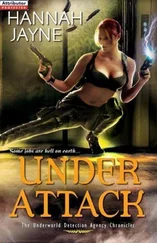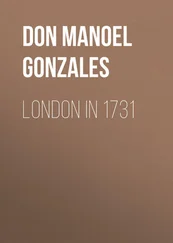In ten years, of course, they’ll find him — Henry. They’ll come for him while he is getting a shave.
He will be leaned back in the chair with a hot, steamed towel wrapped around his face, will be breathing in the slight, medicinal, clean, soapy smell of the towel, waiting to be lathered up, will be thinking of little more than what he should do for dinner after the shave when they, or rather she, will come up to him and lift the towel off his face, drop it in his lap, and say, “Hello, stranger.”
At first, he won’t recognize her.
His first thought, seeing her, will be, Why did they send a robot?
His second thought will be, When did they start using robots?
But it won’t be a robot. It’ll be Sarah, who will, by that time, only look like a robot.
By this time, he won’t have seen Emma in ten years. She will have missed their rendezvous point. He will have gone searching for her in the rubble of Oyemi’s compound. He won’t have found her or any sign of her, or Oyemi or any sign of Oyemi. He will have placed cryptic ads in the Missed Connections sections of hundreds of weeklies across the country, will have looked for her abroad and at home. He will have come home every day expecting to find her in his apartment the same way he’d found her all those years ago, wearing one of his shirts, reading one of his books, listening to one of his records, but he never will have. In all this time, he will never have once suspected that she is dead. And then he will see Sarah, and then he’ll know, or think he knows.
As soon as he figures out that Sarah herself has come for him, that she has probably already found all the others (perhaps even Emma), he will hide his feelings, or do his best to hide them, and will focus on the fact that she is part — or mostly — robot. He will glance at her arm, her left arm, which has always been the arm he’s suspected is the mechanical arm, and he will think to himself, Aha! I was right! Because there it will be, her mechanical arm, naked and metallic and exposed and full of a strange, almost organic beauty, but then he will look at her other arm, her right arm, and it will be the same, almost exactly the same, and so he won’t be able to say which one was the original mechanical arm. For some reason, the fact that he will continue to live his life holding on to this mystery — even if not for very much longer — will sadden him even more than the fact that he has been found out, has been caught by surprise, and that his uncertain future now seems certain to come to a short and violent end.
Although to be completely honest about it, what will upset him most of all will be that he won’t be getting the massage that comes complimentary with every shave, and for a second, he will consider asking her, Can you wait, can you give me just ten minutes, can you wait ten minutes, please?
But that wouldn’t be for another ten years.
A lot could happen in ten years. Almost an entire life could be lived in ten years.
And as far as Henry knew, that life started right then, at JFK International.
Or better yet, that life would start when he and Emma met, which they would do. Not right away — situations had to cool down, everything had to pass them by — but soon.
He forgot how sweet his drink was and took another sip and then grimaced and then leaned back in his chair to wait and to think or to not think at all about anything, about any of it. He didn’t think about the future, and did his best to stop thinking, finally, about the past, and he worked hard to concentrate on just this moment, this moment right now, here in this airport, the freedom he felt or should have felt sitting there with the knowledge that things had gone not the way he’d wanted them to go — he’d never wanted things to go this way — but how he’d planned them to go.
He took a deep breath and looked around him at the crowds moving here and there to catch flights or grab luggage or a taxi and all he saw before him was a bright, uncluttered, simple future. A future that was spread out before him, that was waiting for him in Durham or Cape Town or Helsinki, but was waiting for him all the same.
Thanks to PJ Mark for reading this a million times and for not just helping me find the right home for the book but also helping me carve the right book out of the original jumble of words I sent you. Thanks to Megan Lynch and Laura Perciasepe for taking this book on and picking up where PJ and I left off, and to all the amazing folk at Riverhead Books for their continued support and enthusiasm and for telling everyone how much they like both my books and my pies.
Every writer needs a first reader. For years now, Bryan Dunn has been mine, and I can’t thank him enough for his thoughtful readings of my work. To his name, I now add both Emily Raw and Kerry DeMunn, and thank them both as well.
Many thanks also go out to E. Tyler Lindvall, Dinaw Mengestu, Owen Egerton, Marie-Helene Bertino, and Hillery Hugg for reading or listening to portions of this and offering me unbridled encouragement to keep moving forward.
Thanks to the Institute of American Indian Arts and the University of Kentucky, my colleagues at both of these grand institutions, for their support, for great students to work with, and the time and space in which to write, test, and revise.
But most of all, thanks to my mom and dad and my sister, who put up with me and continue to put up with me for going on very many years, and for my kids, Anabel and Dashiell, who are only now realizing just how much work it takes to put up with me, and eternally — literally, for an eternity — thanks to you, Sharon. You make putting up with me seem clever and fun.












